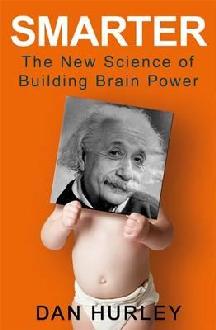- HOME
- INTRO TO THE FORUM
- USE AND MISUSE
- BADLY WRITTEN, BADLY SPOKEN
- GETTING
TO KNOW ENGLISH - PREPARING FOR ENGLISH PROFICIENCY TESTS
- GOING DEEPER INTO ENGLISH
- YOU ASKED ME THIS QUESTION
- ADVOCACIES
- EDUCATION AND TEACHING FORUM
- ADVICE AND DISSENT
- MY MEDIA ENGLISH WATCH
- STUDENTS' SOUNDING BOARD
- LANGUAGE HUMOR AT ITS FINEST
- THE LOUNGE
- NOTABLE WORKS BY OUR VERY OWN
- ESSAYS BY JOSE CARILLO
- Long Noun Forms Make Sentences Exasperatingly Difficult To Grasp
- Good Conversationalists Phrase Their Tag Questions With Finesse
- The Pronoun “None” Can Mean Either “Not One” Or “Not Any”
- A Rather Curious State Of Affairs In The Grammar Of “Do”-Questions
- Why I Consistently Use The Serial Comma
- Misuse Of “Lie” And “Lay” Punctures Many Writers’ Command Of English
- ABOUT JOSE CARILLO
- READINGS ABOUT LANGUAGE
- TIME OUT FROM ENGLISH GRAMMAR
- NEWS AND COMMENTARY
- BOOKSHOP
- ARCHIVES
Click here to recommend us!
TIME OUT FROM ENGLISH GRAMMAR
This section features wide-ranging, thought-provoking articles in English on any subject under the sun. Its objective is to present new, mind-changing ideas as well as to show to serious students of English how the various tools of the language can be felicitously harnessed to report a momentous or life-changing finding or event, to espouse or oppose an idea, or to express a deeply felt view about the world around us.
The outstanding English-language expositions to be featured here will mostly be presented through links to the websites that carry them. To put a particular work in better context, links to critiques, biographical sketches, and various other material about the author and his or her works will usually be also provided.
Challenging the dogma that IQ sets limits to what we can achieve
In a new book, Smarter: The New Science of Building Brain Power (Hudson Street Press, 275 pages), award-winning American science journalist Dan Hurley makes a daunting hard-sell but nevertheless persuasively argues that the mind can be kept razor-sharp by continuously challenging both brain and body. Hurley anchors his argument and personal advocacy on the findings of a 2008 study that “fluid intelligence”—the ability to learn, solve novel problems, and get to the heart of things—can be significantly increased through training. That study by Swiss researchers Susanne Jaeggi and Martin Buschkuehl challenged the century-old dogma that one’s IQ puts an upper limit—a cognitive glass ceiling—on what the person can ever achieve.

The book chronicles Hurley’s efforts to sort fact from self-help drivel on fluid intelligence, in the course of which he met with over 200 leading scientists, offered himself up as a human guinea pig, road-tested commercial brain-training programs, joined an intense “boot camp” exercise class, and even underwent transcranial direct-current stimulation (that’s jargon for getting one’s brain zapped) to find out if indeed he could make himself smarter. Towards the end of the book, he concludes: “What can I tell you? I feel smarter.” (It would, of course, be a nasty spoiler to say here by how much.)
There are doubters of Hurley’s claims in Smarter, though. Says Annie Murphy Paulmarch in a review of Smarter for the New York Times Sunday Book Review: “Cognitive training may yet turn out to be the solution to sagging memories and flabby reasoning. But it’s not there yet. Hurley’s book feels premature, like the crowning of a winner in a race that’s only just begun.”
For the moment, then, let’s just say that the jury is still out on the wisdom and usefulness of dramatically attempting to boost our intelligence beyond what our genes have ordained for us.
Read “MIND Reviews: Smarter by Dan Hurley” in ScientificAmerican.com now!
Read an excerpt from Dan Hurley’s Smarter in BarnesandNoble.com now!
ABOUT THE AUTHOR:
Dan Hurley is an award-winning science journalist whose 2012 feature in The New York Times Magazine, “Can You Make Yourself Smarter?”, was one of the magazine’s most-read articles of the year. Hurley has written on the science of increasing intelligence for the Washington Post and Neurology Today. His previous book, Diabetes Rising, was excerpted in Discover and Wired. He has written nearly two dozen articles for the New York Times since 2005.
OTHER INTERESTING READINGS:
Studies in self-indulgence. In “Narcissism: Know they selfie,” the Economist magazine reviews Simon Blackburn’s Mirror, Mirror: The Uses and Abuses of Self-Love (Princeton University Press, 209 pages) and Elizabeth Lunbeck’s The Americanization of Narcissism (Harvard University Press, 367 pages). Blackburn examines narcissism through philosophical debate on ethics, integrity, hubris, self-respect, and temptation as well as through the lens of literature, while Lunbeck explains how narcissism came to be “the pundits’ favourite diagnosis”—a personality disorder that Freudians contended could somehow be reflected in the spirit of a wealthy, coddled, and self-indulgent age.
Read “Narcissism: Know they selfie” in Economist.com now!
Putting premium on results. In “Bright Lights, Big Data,” an article that came out in the March 20, 2014 issue of The New Yorker, Slate columnist Mark O’Connell says that innovations like culturomics—the quantitative analysis of digitized texts to generate empirical data about historical, cultural, and linguistic trends—continue to gain prominence because they extend the prospect of something like scientific progress in the study of human culture, offering what had up to now been outside the purview of the humanities: results.
Read Mark O’Connell’s “Bright Lights, Big Data” in NewYorker.com now!
Confronting an orthodoxy. In “Living life by the book: why reading isn’t always good for you,” an article that came out in the March 20, 2014 issue of the New Statesman, Leo Robson takes a critical look at the hardened orthodoxy that reading—the diet being Shakespeare and 19th-century novels, plus the odd modernist—will make you healthier, stronger, kinder. He questions the prevailing belief that the benevolence of reading is a stable fact rather than a social attitude that we are free to dispute.
Read Leo Robson’s “Living life by the book” in NewStatesman.com now!





